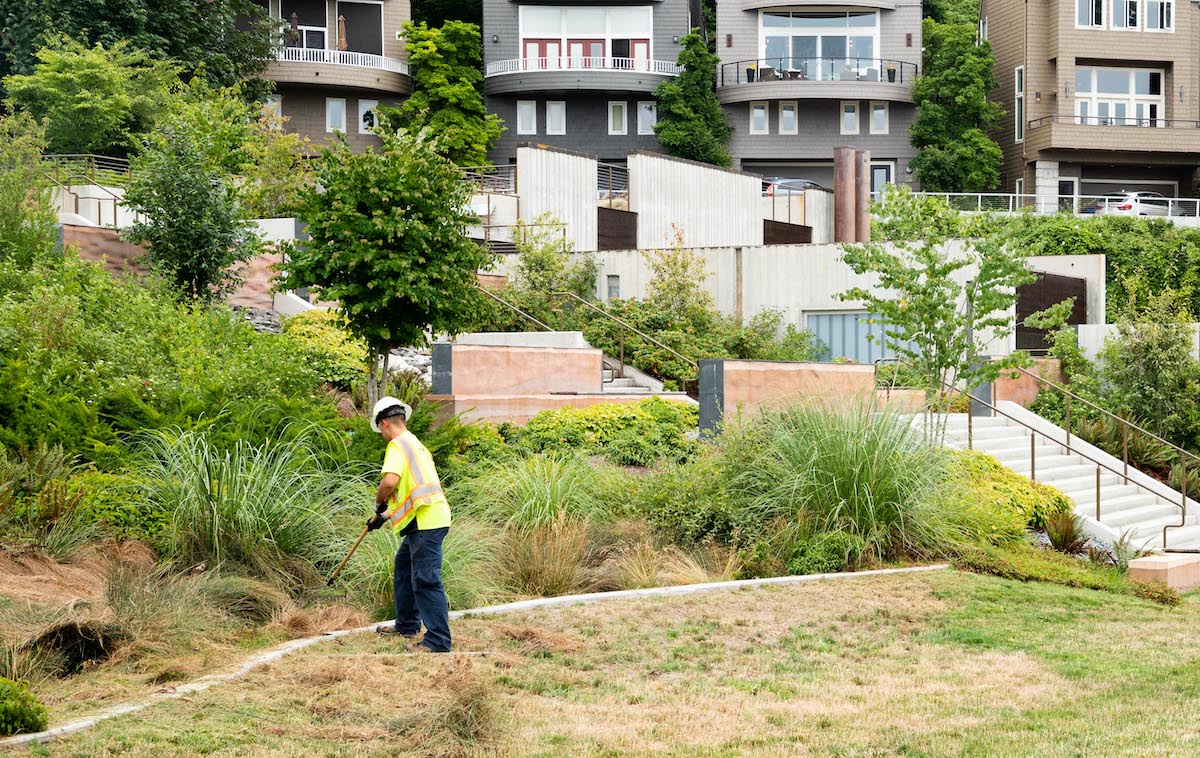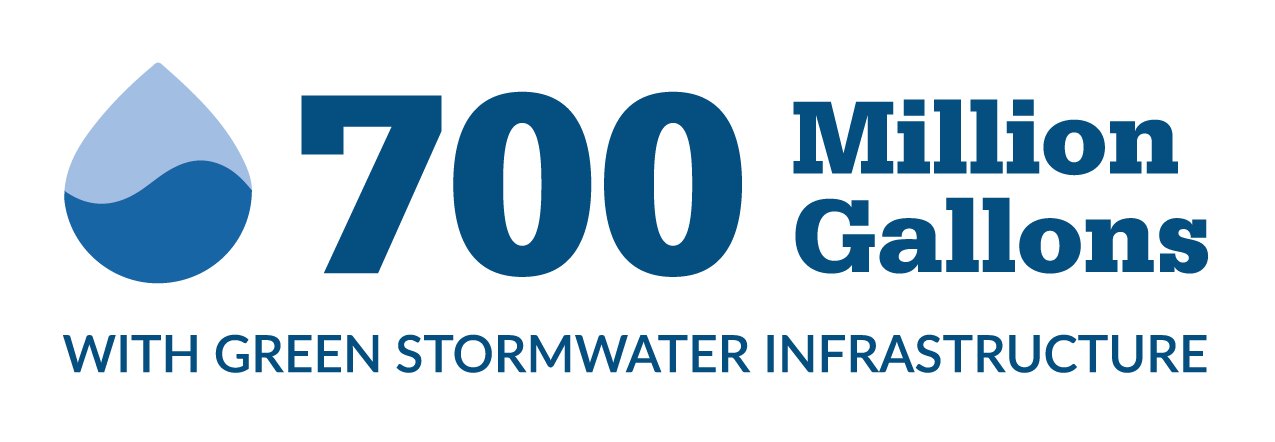Encouraging Community Partnership
King County, Just Health Action, and Duwamish River Clean Up Coalition community volunteers helped build the largest freestanding “green wall” in the Seattle area— a 136-foot-long and 12-foot-high vegetated trellis at CDL Recycle in Georgetown.
In partnership with Seattle Housing Authority, RainWise installed 10 cisterns at Willis House that manage 27,000 gallons of rainwater from over 7,600 square feet of roof area.
At Hillside Church in Kent, World Relief Seattle and several other organizations partnered to empower immigrants, refugees and the local community to create the Paradise Parking Plots Community Garden.
At Hillside Church in Kent, World Relief Seattle and several other organizations partnered to empower immigrants, refugees and the local community to create the Paradise Parking Plots Community Garden.
Working with ECOSS, Co Lam installed five cisterns to store rainwater for watering and reduce flooding.
Floating wetlands are an innovative technology that improve water quality and help young salmon survive as they migrate to the ocean.
Labateyah House installed a rain garden and established two education programs with Native cultural components.
The Environmental Justice and Service Equity Division (EJSE) helps SPU and partner departments carry out the City of Seattle’s Race and Social Justice Initiative. We aim to deliver inclusive and equitable service to customers across the city.
Environmental justice is a core element of equity. This means we are fair and ethical in how we spread the risks and the benefits of projects. We consider the health of people and the environment. We know that not all customers have access to government services in the same way, and focus our resources so that race, language, income, age, or disability don’t get in the way of working with us. In this way, EJSE plays an important role in delivering SPU’s promise to customers.
We have three key strategies that guide our work:
- Embed race and social justice and service equity across SPU.
- Work to include under-represented groups when we work with communities.
- Continue to align our efforts within SPU, with city, county, and community efforts.
King County provides resources for more equitable delivery of the RainWise program by consistently funding multicultural outreach to residences and big roof demonstration projects with diverse constituents. King County has also funded the promotion, training, and support of a cadre of bi-lingual contractors who can reach out to Vietnamese, Cambodian, Chinese and Spanish speaking people. These resources support the County Executive’s Equity and Social Justice Ordinance.
The Green Stormwater Infrastructure (GSI) industry is not only a natural and sustainable solution for stormwater management — but it also provides opportunities for living-wage jobs. Expertise in the design, construction, and maintenance of green infrastructure is growing in demand. Since 2015, King County has provided substantial funding for DIRT Corps, a bilingual green infrastructure job training program that offers on-the-job training for young adults.
The program specifically encourages women, people of color, veterans, and un- or under-employed adults to develop GSI skills, such as sustainable design, habitat enhancement, water quality enhancement, and public education. In addition to skill-building, DIRT Corps helped participants match their GSI career interests and expertise with available vocational/technical coursework and job-finding tools.
Design and construction in GSI offer rewarding and financially stable jobs. Landscapers with operations and maintenance (O&M) specialization can start in entry-level positions with a clear path to higher-paying careers in our clean water utilities. Since access to living-wage employment is a main determinant of health, job training in the growing GSI industry offers widespread advantages. Since 2006, SPU has worked with the Seattle Conservation Corps (SCC) to maintain SPU-owned GSI facilities. The SCC provides employment for people experiencing homelessness, providing opportunities to train and work in a structured program that provides training, job skills, and carries out projects that benefit the local community and environment.
SPU is also in the process of partnering with the Seattle Jobs Initiative (SJI) to develop a new program called SPU Opportunity WorkCorps (SOWCorps). This program is focused on providing green jobs to opportunity youth aged 18-25, and providing them with insight into utility operations and career pathways in the GSI and landscape maintenance field.


